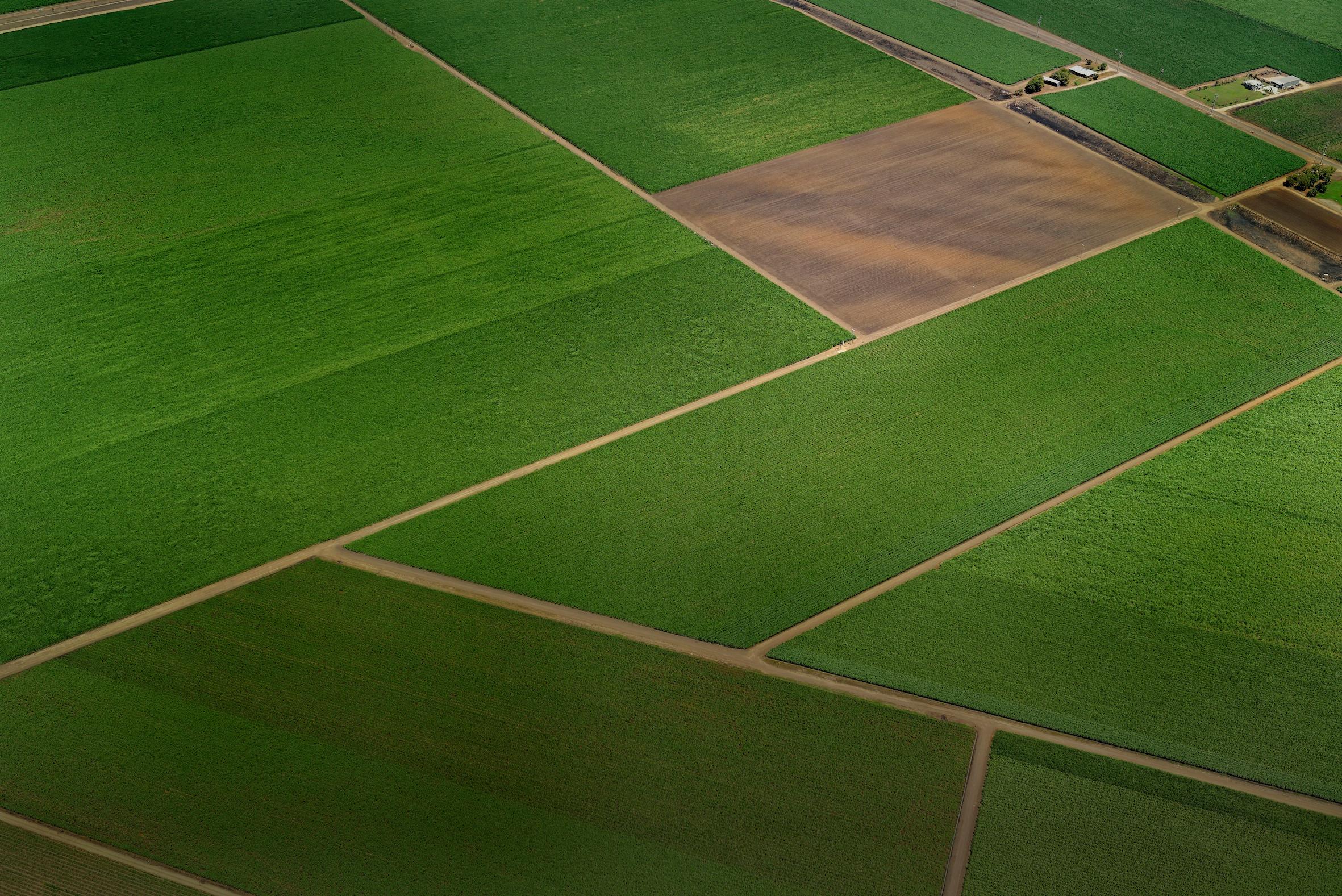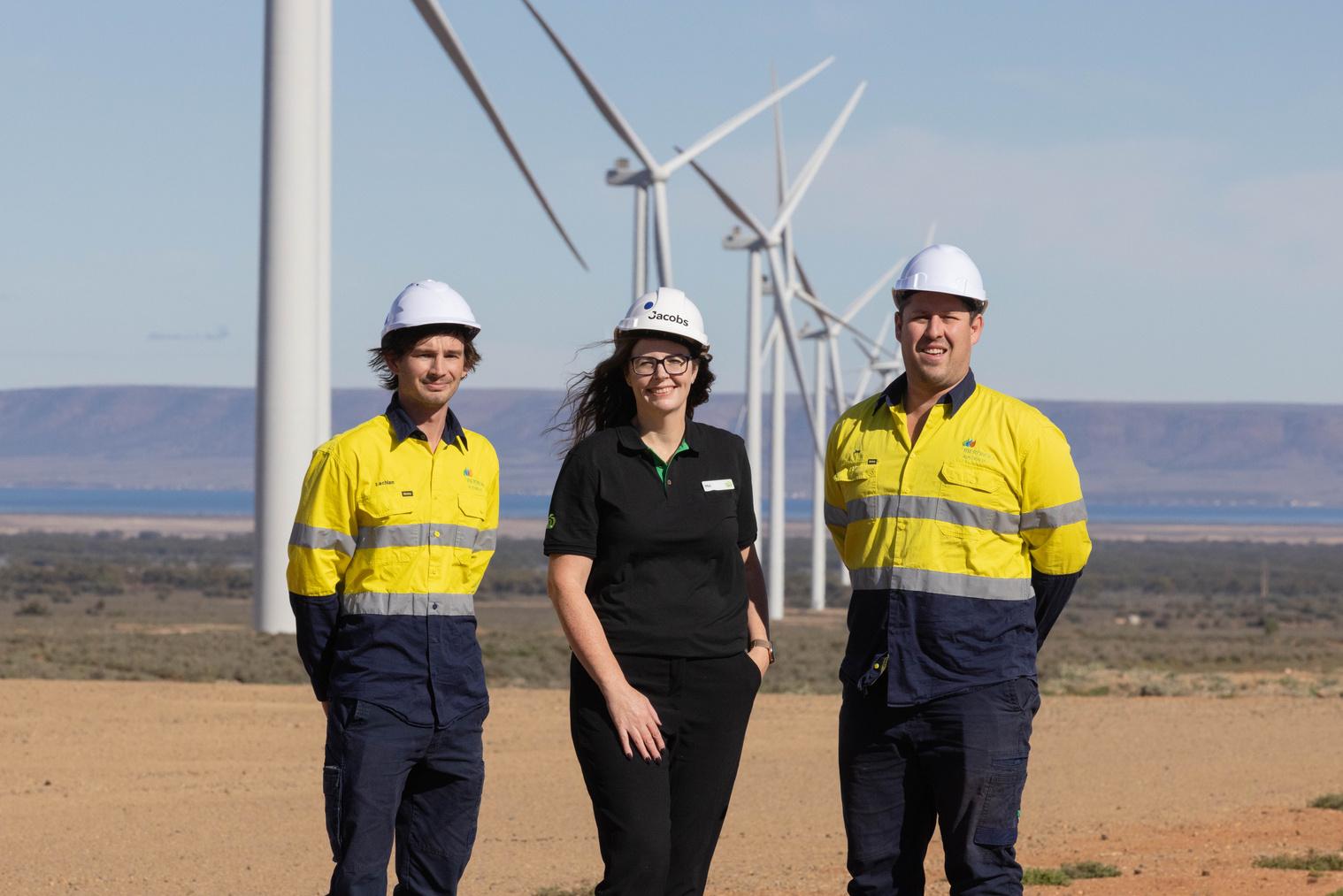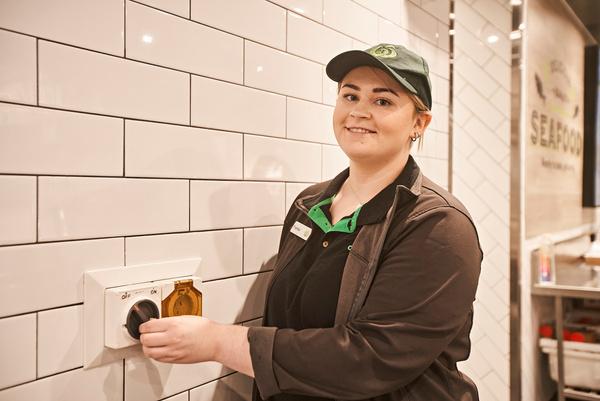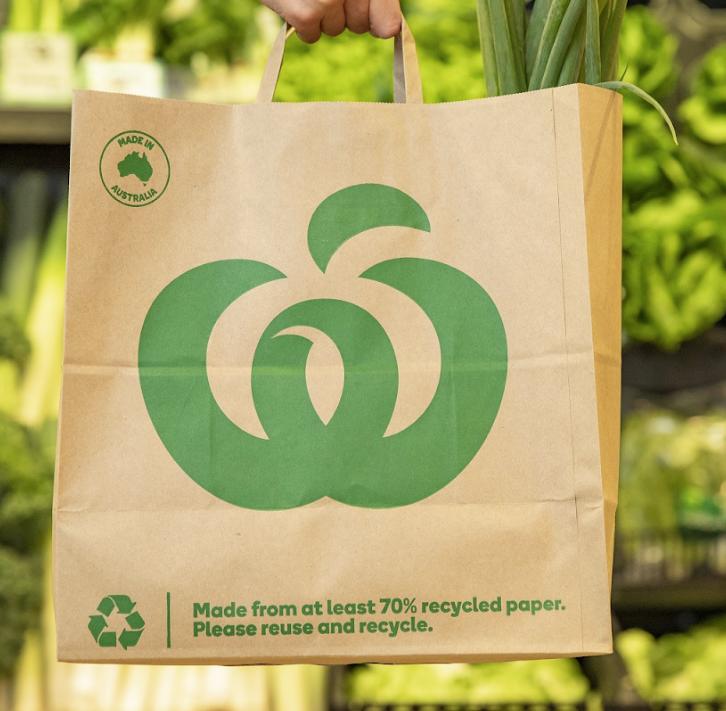
3 minute read
Sustainability
SustainabilityUpdates
Changestoourbagrangefora greenerfuture
Woolworths has become the first national supermarket to pledge to remove 15c and online plastic shopping bags for good! In early June we announced that we will phase out these bags nationwide over the next year.
This change will see more than 9,000 tonnes ofplasticremovedfromcirculationannually.
The 15c and online plastic shopping bags will be phased out gradually state-by-state from Woolworths supermarkets, Metros, and online orders, with Woolworths in Western Australia already making the move earlier this year in time for the State Government mandate coming into effect at the end of this month. Eight in every ten Woolworths customers already bring their own bags when they shop, and we are encouraging customers to bring their own bags each time they shop. For those who don 't bring their own bags, Woolworths’ paper bags made from 70% recycled paper are available in-store along with a range of reusable alternatives.
In South Australia, compostable Fruit & Veg barrier bags have replaced traditional plastic F&V bags. Our SA customers also have good access to FOGO (kerbside food organics) collection, with the majority of residents able to safely dispose of the compostable bags in their green bin. The bags work well with kitchen food scrap caddies, making it easy for customers to both reduce their plastic waste, and to divert food waste from landfill, win-win!
This change has the potential to remove around 70 tonnes of plastic waste from circulationeachyearinSAalone.
We will continue to explore opportunities to help make it easier for our customers to make more sustainable choices.
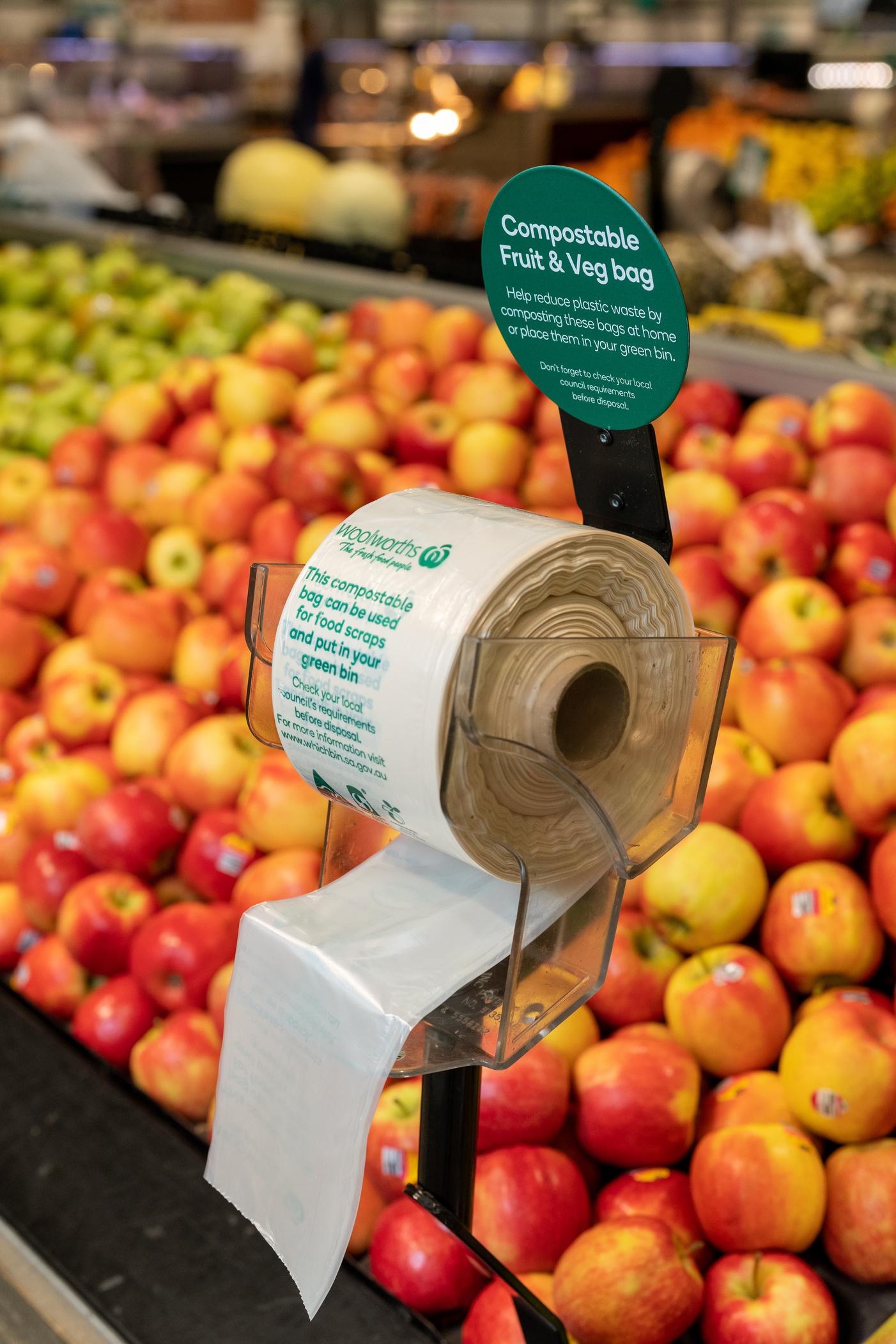
WoolworthsGrouptoflipthe switchon100%greenenergyin SouthAustraliabyJuly

Woolworths Group’s operations in South Australia will be powered by 100 per cent renewable electricity from July this year - the first state to go completely green in the retailer’s nationwidetransitionby2025.
A new South Australian renewable energy partnership will see the retailer’s almost 70 Woolworths supermarkets, 17 BIG W stores and Adelaide Regional Distribution Centre go green equivalent to every home in Brighton and Glenelg switching to green energy. Under a new energy partnership from July, Woolworths Group will source South Australian renewable electricity from Iberdrola Australia ' s wind turbines and solar network at the newly developed Port Augusta Renewable Energy Park where 50 turbines and 250,000 solar panels will work in tandem to supply approximately 100,000 Megawatt hours of renewable electricity per year on the retailer’s behalf.
Following this milestone in South Australia in July, Woolworths Group will continue to gradually replace traditional energy contracts in other states with green agreements as it transitions to renewable energy nationwide by 2025. As Australia’s largest retailer, representing around one per cent of the country’s total energy use, Woolworths Group’s transition to renewable electricity by 2025 represents a significant influx of green energy to the national grid and a sizable investment in the sector over the next three years. Since 2015, Woolworths Group has cut its carbon emissions by more than 27 per cent through ongoing investment in energy efficiency, including the transition to LED lighting in more than 1,000 supermarkets, and the continued rollout of its own solar panel network across the rooftops of stores and distribution centres - now numbering more than 99,000 panels across 171 locations. Woolworths Group has pledged not only to reach net neutral carbon emissions by 2050, but to make its operations net carbon positive by 2050 - if not sooner - meaning it will remove more carbon from the atmosphere than it produces. South Australia has been the site of a range of retail sustainability advancements in recent years:
The first state to ban single-use plastic bags and picnicware;
The home of Woolworths’ strategic paper bag manufacturing partner, Detpak, which has supported the onshoring of paper bag production; and
Most recently, the first state in which
Woolworths replaced plastic fruit and veg bags with a compostable alternative in response to high rates of composting access.
